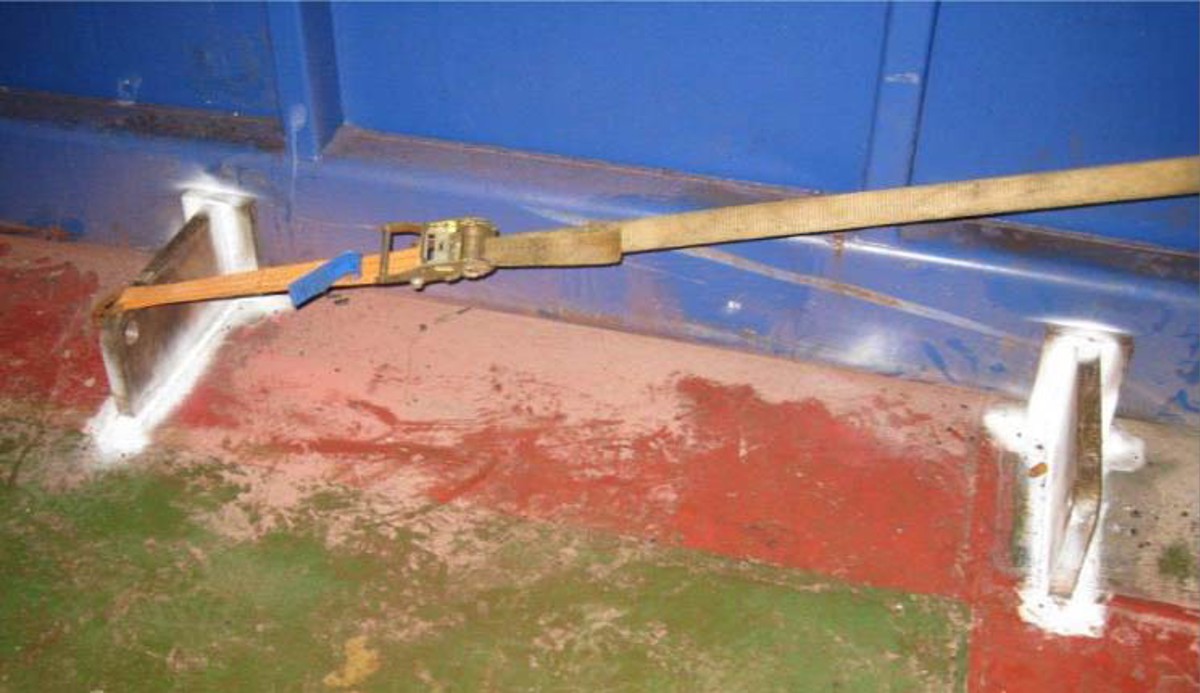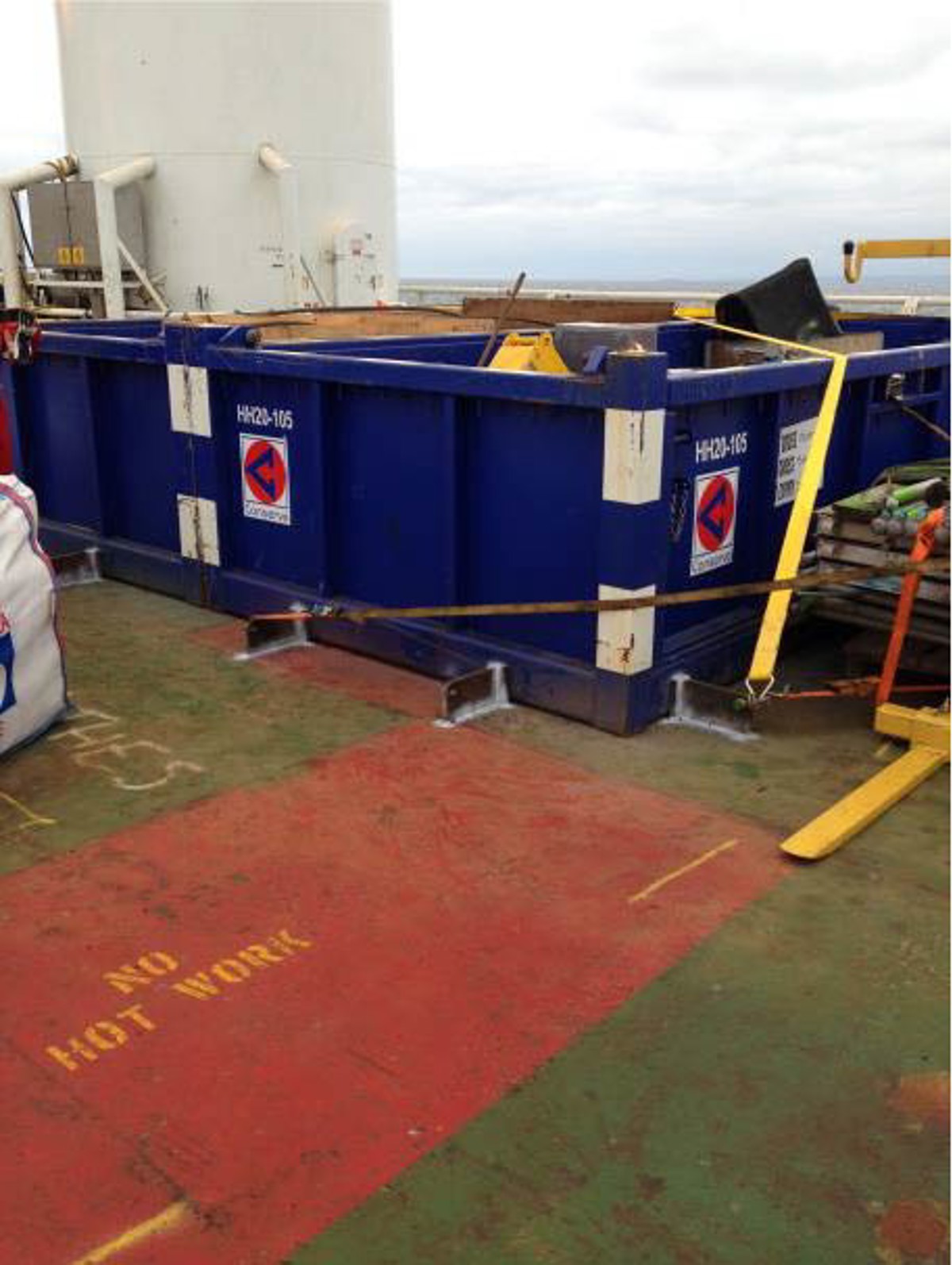Near-miss: Welding in ‘no hot work’ zone
- Safety Flash
- Published on 20 September 2016
- Generated on 18 July 2025
- IMCA SF 24/16
- 1 minute read
Jump to:
A member has reported a near miss incident in which welding was discovered which had clearly taken place in a ‘no hot work’ zone.
What happened?
The welding was discovered during pre-sail departure checks of the main deck. The Chief Officer noticed dogging plate welds securing a half-height container had been welded on to a ‘no hot work’ zone on the deck.
Our members’ initial finding was that the task was not properly planned or supervised, allowing sea-fastenings to be welded on to a ‘no hot-work’ zone.
Related Safety Flashes
-
IMCA SF 08/15
2 June 2015
IMCA Safety Flashes summarise key safety matters and incidents, allowing lessons to be more easily learnt for the benefit of the entire offshore industry.
The effectiveness of the IMCA Safety Flash system depends on the industry sharing information and so avoiding repeat incidents. Incidents are classified according to IOGP's Life Saving Rules.
All information is anonymised or sanitised, as appropriate, and warnings for graphic content included where possible.
IMCA makes every effort to ensure both the accuracy and reliability of the information shared, but is not be liable for any guidance and/or recommendation and/or statement herein contained.
The information contained in this document does not fulfil or replace any individual's or Member's legal, regulatory or other duties or obligations in respect of their operations. Individuals and Members remain solely responsible for the safe, lawful and proper conduct of their operations.
Share your safety incidents with IMCA online. Sign-up to receive Safety Flashes straight to your email.

